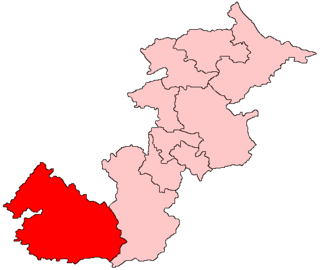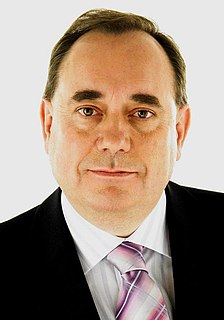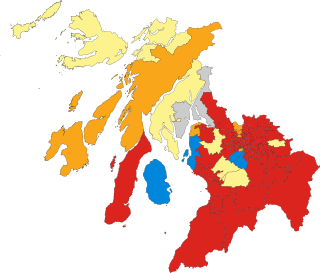
An election to Strathclyde Regional Council was held on Thursday 3 May 1990, alongside regional elections across Scotland. All 103 of the councils seats were up for election.

An election to Strathclyde Regional Council was held on Thursday 3 May 1990, alongside regional elections across Scotland. All 103 of the councils seats were up for election.
| Party | Seats | Gains | Losses | Net gain/loss | Seats % | Votes % | Votes | +/− | |
|---|---|---|---|---|---|---|---|---|---|
| Labour | 90 | 87.4 | 52.2 | 409,905 | |||||
| Conservative | 5 | 4.9 | 16.3 | 127,827 | |||||
| Liberal Democrats | 4 | 3.9 | 5.9 | 46,356 | |||||
| Independent | 3 | 2.9 | 2.0 | 15,553 | |||||
| SNP | 1 | 1.0 | 21.2 | 166,468 | |||||
| Scottish Green | 0 | 0 | 0 | 0.0 | 2.0 | 15,517 | |||
| Independent Labour | 0 | 0.0 | 0.2 | 1,267 | |||||
| SDP | 0 | 0.0 | 0.1 | 680 | |||||
| Wishaw Ratepayers | 0 | 0.0 | 0.0 | 286 | |||||
| Communist | 0 | 0 | 0 | 0.0 | 0.0 | 248 | |||
| Communist Party of Great Britain | 0 | 0 | 0 | 0.0 | 0.0 | 236 | |||
| Socialist (GB) | 0 | 0 | 0 | 0.0 | 0.0 | 191 | |||
| Republican Socialist | 0 | 0 | 0 | 0.0 | 0.0 | 94 | |||
Alasdair Neil Morgan is a Scottish politician. He was Depute Leader of the Scottish National Party from 1990–91 and a served as the Member of Parliament for Galloway and Upper Nithsdale from 1997-2001. He was elected in 1999 as a Member of the Scottish Parliament for Galloway and Upper Nithsdale. From 2003-2011, he served as a member for the South of Scotland region.

Fiona Jane Hyslop is a Scottish politician who is the Cabinet Secretary for Culture, Tourism and External Affairs and the Scottish National Party (SNP) Member of the Scottish Parliament (MSP) for the Linlithgow constituency since 2011, having represented the Lothians Region from 1999 to 2011.

Kilmarnock and Loudoun was a constituency of the Scottish Parliament (Holyrood). It elected one Member of the Scottish Parliament (MSP) by the plurality method of election.

The 2011 Scottish Parliament election was held on Thursday, 5 May 2011 to elect 129 members to the Scottish Parliament.

The 2007 Scottish Parliament election was held on Thursday 3 May 2007 to elect members to the Scottish Parliament. It was the third general election to the devolved Scottish Parliament since it was created in 1999. Local elections in Scotland fell on the same day.

Regional elections were held in Scotland on 5 May 1994, as part of the Local Government (Scotland) Act 1973. These were the last elections before 29 new mainland unitary authorities, established by the Local Government etc. (Scotland) Act 1994, came into effect. The councils up for election were last contested in Scottish regional elections, 1990, and vote and seat changes are compared to the 1990 results.

The Scottish parliament election, 2016 was held on Thursday, 5 May 2016 to elect 129 members to the Scottish Parliament. It was the fifth election held since the devolved parliament was established in 1999. It was the first parliamentary election in Scotland in which 16 and 17 year olds were eligible to vote, under the provisions of the Scottish Elections Act. It was also the first time the three largest parties were led by women.

The second election to Lothian Regional Council was held on 6 May 1982 and yielded a swing to the Conservatives. Whilst the Labour presence was reduced, the Conservatives were unable to win an outright majority, and both parties exited the election with 22 seats. The council Conservative group, under Brian Meek, was able to take over the council however due to support from the SDP-Liberal Alliance councillors.

The fourth election to Lothian Regional Council was held on 8 May 1986 as part of the wider 1986 Scottish regional elections. The Lothian result was little different to the wider Scottish results, which saw Labour making strong gains across Scotland. In Lothian this allowed Labour to secure their majority on the 49-seat council.

The fourth election to the Lothian Regional Council was held on 3 May 1990 as part of the wider 1990 Scottish regional elections. The result saw Labour strengthening their position on the council.
An election to Strathclyde Regional Council was held in May 1974, alongside regional elections across Scotland. All 103 of the councils seats were up for election.

The fourth election to Lothian Regional Council was held on 5 May 1994 as part of the wider 1994 Scottish regional elections. The Lothian result saw Labour further strengthening their already dominant position on the council. The council would ultimately not last long, with regional councils being abolished the following year.

An election to Strathclyde Regional Council was held on Thursday 5 May 1994, alongside regional elections across Scotland. All 104 of the councils seats were up for election, up from 103 at the last election due to a Boundary Review being undertaken.

The 2003 elections to Argyll and Bute Council were held on the 1 May 2003 and were the third for the unitary authority, which was created under the Local Government etc (Scotland) Act 1994 and replaced the previous two-tier system of local government under Strathclyde Regional Council and Dumbarton and Argyll & Bute District Councils. It was held on the same day as the second Scottish Parliament election and resulted in no change to the administration of the council - independent control. These were the last elections to the council using the first past the post electoral system.

The fourth election to Tayside Regional Council was held on 3 May 1990 as part of the wider 1990 Scottish regional elections & British local elections. The election saw the Conservatives losing control of the region, with Labour emerging as the single largest force on the 47 seat council.

The fifth election to Fife Regional Council was held on 3 May 1990 as part of the wider 1990 Scottish regional elections. The election saw the Labour maintaining their control of the regions 46 seat council.
The fifth election to the Western Isles Council was held on 3 May 1990 as part of the wider 1990 Scottish regional elections.

An election to Comhairle nan Eilean Siar was held on 6 May 1999 as part of the wider 1999 Scottish local elections.
An election to Highland Regional Council was held on 3 May 1990 as part of the wider 1990 Scottish regional elections. The election saw Independents win control of 36 of the councils 52 seats.